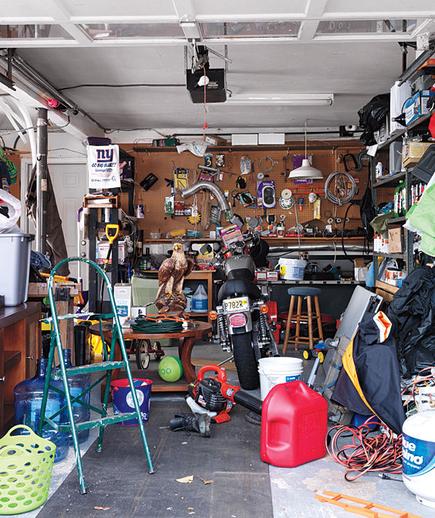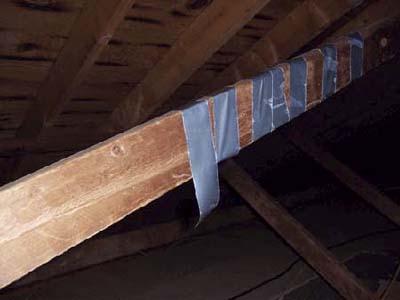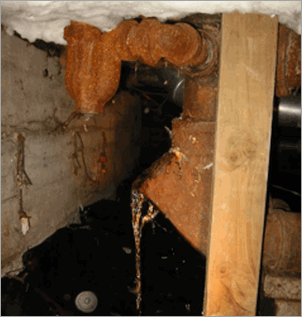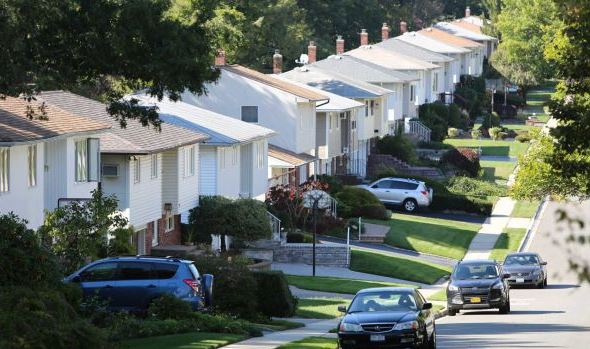Saturday, October 15, 2016
Inspección de Viviendas en Long Island (516) 350-5504
Monday, August 15, 2016
Home Inspections in Long Island, NY
Friday, June 17, 2016
The Need For New Construction Home Inspections
Our years of experience as home inspectors across Suffolk County and Nassau County, NY have taught us that even new construction needs a home inspection. Yes, we might be somewhat biased as inspectors, but there are two reasons to do an inspection on new construction. We detail them below: Issues incurred during construction: Sometimes things […]
The Need For New Construction Home Inspections was first published on Home Inspector Experts
from Home Inspector Experts
Monday, June 6, 2016
Home Inspection For Rental Properties
As a home inspector covering Suffolk and Nassau Counties in New York State, our clients often ask us if owners should invest in home inspections for their rental properties. Our answer is usually a yes. There are four inspections owners of rental properties should perform. Four Rental Inspections Move-in – Unless a rental […]
Home Inspection For Rental Properties was first published on Home Inspector Experts
from Home Inspector Experts
Tuesday, May 31, 2016
Q & A Session With Your Home Inspector

Buying a home is everybody’s dream and probably one of the biggest investments some of us will ever make in our lifetime; well, some of us spend the rest of our natural lives paying for it! Having a home inspection done on the property is of course important if you want to know whether your dream home is ready for your family to move in or not. It might turn out that the house is not worth it after all and you can either use this information to haggle for a lower price or simply walk away from the deal.

Naturally, a few questions about the home inspector that will be inspecting your home and the home inspection process are bound come up. For a start, you want to know that you’re getting your money’s worth, and secondly you don’t want to end up with a shoddy home inspection exercise that leaves you with piles of repair or replacement costs in future.
Therefore, it‘s important that every home buyer asks these 5 questions to the home inspector(s) before hiring.
#1 – Are you registered or affiliated to any professional home inspectors association?
First, you want to establish that you’re dealing with a competent person who has deep knowledge of the ins and outs of the industry. You can’t afford to waste time and money on wannabe home inspectors, remember that.
This of course will paint a clear picture of what they are capable of accomplishing if hired. The logic here is… if a higher public authority say… the NHICC (National Home Inspector Certification Council) can vouch for their ability and recognize their certification(s) as a qualified home inspector, then you can trust their expertise too. However, this is not enough to qualify a home inspector.
Note: You are allowed to ask for proof of registration or affiliation (membership card, licenses, certifications). Any professional will understand and actually produce this evidence for you on the spot hoping to win you over; and without taking any offense at all. You can also ask whether they continue to take any more certification courses to advance their skills. If they are NHI certified the better.
It might seem like an obvious thing to do but Michael Del Greco has noted that very few clients ever ask to see proof of certification or licensing. He humorously points out that his license has only been good for his wallet in all his years of experience. Michael claims he can count the number of times he’s had to produce his license to a client. Check out more from his informative personal view:
Questions To Ask Home Inspectors During Home Inspections
I can count on one hand the times I have been asked one of these important questions.
First question you should ask is one that I have yet to be asked by any home buyer since 1993 despite having 10,000 or so clients (except by a few who have read this). “May I please see your home inspector license”?
Please ask. I have been carrying ID’s in my wallet for years not only because I am required to do so by law and so once a year or so I get to show them to a client. If your inspector can’t find his or hers it is time to stop the inspection and try again with another company… see more real experience questions
#2 – Can I be there during the inspection?
Not many home inspector’s will answer “no” to this question although a few would rather you just sit and wait for their report. The reason why you want to be there during the inspection is simply because this is the time you get to learn key details about your new home. You get to find out where all the main shutdown switches are, or to formulate your own opinion and prioritize the problems pointed out during the inspection. Here you can continue to ask for more clarifications on all problems the home inspector identifies as you go about the inspection. You will be surprised that some problems uncovered during this exercise will only take cheap and easy DIY fixes. Here is what Tara-Nicholle Nelson has to say about this issue:
5 Questions to Ask Your Home’s Inspector
Your home inspector’s job is to point out everything, within the scope of the inspection, that might need repair, replacement, maintenance or further inspection – or seems like it might be on it’s last leg. But they also tend to be experienced enough with homes to know that no home is perfect. Many times, I’ve asked this question about an item the inspector described as “at the end of its serviceable lifetime” and had them say, “I wouldn’t do a thing to it. Just know that it could break in the next 5 months, or in the next 5 years. And keep your home warranty in effect, because that should cover it when it does break.”… read more
#3 – How much will it cost me and how do I pay you?
This is very important for the overall success of the deal. Go over the numbers and see if you can agree on a price because this will determine whether business will proceed or not. Actually, it determines whether you get to ask question #4!
Once you agree on a price, try to find out how the home inspector wants to be paid; check, PayPal, credit card or cash? Finally, this is the best time to throw in some bargaining skills and try to haggle for a discount especially if the mode of payment chosen by the home inspector has extra transaction fees.
Paul Wilson however seems to think that the question of price should come last. He also goes on to say that cutting corners in order to save a few dollars is not always the best idea. “There will always be someone who charges less! The question is – are they your best choice?”, he adds. Here’s an extract from his article:
20 Questions for your Home Inspector
A question that almost always gets asked first and yet should be in fact, one of the last and least important in your decision process. What good is a $50 discount if the inspector you are hiring isn’t the most qualified or experienced available. When you are about to make one of the largest decision and investment of a lifetime, this is not the time to think about saving a few bucks by cutting corners. You need experience on your side and lots of it!
The amount of the fee should be the least of your worries when you consider how much you are planning on investing in a home. Home inspection is no different than many other professional occupations – you generally get what you pay for. Cheaper is rarely the best. A professional home inspection conducted by a fully qualified individual is well worth the expense… check out the full list
#4 – How long before I get the inspection report?
Once you have the price issue done, or the prices sound reasonable enough for consideration, then you can continue to ask about the inspection report. Some home inspectors will give you full report immediately after the inspection exercise while others will only provide a sketch report and deliver a full report later (usually 24 hrs to a few days).
The main concern here is having enough information to help you decide whether to see the deal through or cut and run. You can also ask the home inspector to give you a honest personal opinion on the status of the house on offer. See if they would consider buying the property if they were in your position. If you’re satisfied with the answer you get, then its time to move to the last question.
#5 – Can you recommend a good contractor for the serious identified repairs or replacements?
Any good professional will be ready to part with this information without butting an eyelid. You know the saying “Show me your friends and I can tell the kind of person you are”? Well, it works on everyone, including home inspectors.

The home inspector should have a solid network of readily available professionals remotely related to their industry. If an inspector cannot name at least five recommendations from the top of their head then this is a red flag; please stop what you’re doing with this home inspector and move on to the next. The inspector should be in a position to point you to a good electrician, plumber, property lawyer, real estate agent or even fellow home inspector.
So there you have it… these 5 questions will definitely lead you to the right decision and the right home inspector. Sometimes you can end up with two to three options interviewing several home inspectors and this can provide a problem by itself. The main thing however is to concentrate on who gives you the best deal in terms of price and all the areas they cover during the inspection. In fact this should come as question #6! How deep does their inspection exercise go?
Image Credit: Image 1 Image 2 Image 3 Image 4 Image 5 Image 6
Q & A Session With Your Home Inspector was first published on Home Inspector Experts
from Home Inspector Experts
Wednesday, May 11, 2016
Give Your Home a Mini Makeover
Things become boring or old when you have lived in a home long enough. That’s the reason why bringing in “freshness” in the form of a mini makeover can help take the gloom away. But what about the expenses? Don’t you need thousands of dollars to renovate your home?
Well, there’s good news… a mini makeover can fit any budget if done right. You can accomplish a lot on a dime especially if you’re from the DIY camp. FYI, this is GREAT for any pre-sale properties as well. All you need is pocket change and lots of creative thinking.
Research is the first step towards any successful mini makeover exercise. Finding out where to find stuff or who to call from friends and family is always a good way to start. A few referrals here and there can take you a long way especially in terms of saving and getting cool ideas. You can expect more discount offers (hiring or buying) when you take this approach.
So, how do you go about mini makeovers?
First of all, sit down and make a list of everything that you think needs touching up. This means every room, the garage, and finally the outdoors if you have a yard (front or back). There’s even more to include in your list if you have a porch, a finished basement, or patio. But let’s not get ahead of ourselves, everything needs careful planning.
There is a very interesting piece prepared by Stephanie Sisco where a family in New York gets a complete mini home makeover. Sometime a makeover may costs you nothing but time and organization. Chip Cordelli helps the Bruno family get back to perfect order and scenic beauty in just a few mini makeovers as highlighted by Stephanie:
A Room-by-Room Makeover for an Organized Home
The Bruno family of Congers, New York, wrestled with stuffed closets, mayhem in the garage, and the tyranny of toddler toys. Sound familiar?
Clutter coach Chip Cordelli swooped in with solutions (and inspiration!) for turning classic trouble zones into home highlights. Get even more home makeover tips… view before and after gallery here
Now lets get to places that always come last in most of our mini makeover lists, the basement! Ok I get it… that’s where you throw all the junk that doesn’t fit into the garage, right?
On the contrary, basements can be the ultimate chill spots if you know what to do. What do you think of your very own home bar? Complete with soft music and a TV for those Saturday night games… sounds heavenly right? Well you can have it all and Martha Uniacke Breen knows exactly how you can achieve that. Check out her article on basement makeovers:
9 budget-friendly basement makeover ideas
Don’t leave your basement neglected. A little time and effort can turn your basement into a spectacular space your family loves.
Basements are often the spinster relatives of the rest of the house, says designer Robin Siegerman, principal of Sieguzi Kitchen & Home Inc. and author of Renovation Bootcamp: Kitchens. If you have a finished basement but it’s outdated and you want to make it more inviting, or drywalled and insulated (and therefore suitable as a casual living space) but otherwise bare, you can spruce it up without spending a lot of money…. here are 9 more ideas
Your basement is not the only neglected part of your home. Your garage and more specifically your garage door can suffer a lot of neglect from homeowners. Needless to say your garage door is part of your home’s front face and therefore adds to the aesthetic value of the entire estate.
Here are a few tricks to give your garage door a new facelift without as much as touching your wallet. Find out how you can get and use this garage door makeover kit from this enhancing and improving your biggest investment video from DSpaceTV. DIYers will surely love this:
Image Credit: Image1 Image 2
Give Your Home a Mini Makeover was first published on Home Inspector Experts
from Home Inspector Experts
Sunday, May 1, 2016
Protecting Your Biggest Investment
Some people struggle to own one, while some own a few… but all the same, owning a home is one of the major investments anyone can achieve in their lifetime. It therefore goes without saying that your hard-earned investment will definitely need protection.
There are several way to protect your home;
- Title Examination / Insurance – less understood but very very important!
- Homeowner’s Insurance – also vital for any homeowner
- Burglar proofing – for obvious reasons
- Regular Home Inspections and Professional Remedies (if and when suggested)
- Fire proofing – fire detectors and alarms, sprinklers, extinguishers…
- Regular General Maintenance – quick replacement of broken or missing parts
This might seem a lot… (probably because it is!), but every home owner who wants to live in peace and enjoy their investment will definitely have to cover the list highlighted above. It’s an on going process that only stops when you either die or sell the property. Constant improvements like repainting and good general maintenance to prevent problems like moisture, mold, termites or other pests also help to boost your home’s equity. This puts you in a better position as a seller, or when borrowing from lenders.
Protecting your biggest investment might seem like an obvious thing but Kimberly J. Howard points out a few facts that most homeowners overlook. Even paying down your mortgage loan to remain free of any debt is a way of protecting your biggest asset too! However, her main focus is on “physical protection” and this is what she has to say:
Protecting Your Greatest Asset – Your Home
Your biggest investment is likely your home. You can protect it – in ways that go beyond staying current on the mortgage.
A home is more than a financial investment. It is an emotional investment. The feeling of owing your dream house is the experience of a lifetime. You relish having something that’s all yours – a place where your own style statement tells the world who you are.There are three crucial areas to focus on: access control (security), fire prevention-response and maintenance… here are the details
But wait… before you get in over your head with excitement as a new home owner, please turn your attention back insurance and more specifically… “Title Insurance”. Please also note that the title examination and insurance process should come before you close! Imagine the shock when you buy a home for your family then get kicked out 2 years later on a technicality just because you did not follow due diligence?
Warning: You can lose EVERYTHING on a home purchase deal for failure of securing a title insurance policy that would probably cost you $250! one-time premium.
The NAIC (National Association of Insurance Commissioners) has given a detailed guide on how home buyers should go about protecting their property investment from matters touching on title insurance. The publication also highlights the importance of learning about title insurance as a home owner or prospecting buyer. Here is a sneak peek of the informative article:
TITLE INSURANCE
Protecting Your Home Investment Against Unknown Title DefectsMost first-time home buyers are familiar with various types of insurance (e.g., auto, life), but are unaware of what title insurance is, and the role it plays in real estate transactions. In the rush to close such transactions as quickly as possible, title insurance is typically an area that consumers commonly overlook in the home buying process.
If you borrow money to finance the purchase of a home or property, a lending institution will likely require you to buy a title insurance policy to protect its interest. As a consumer, it is in your best interest to be well-informed about title insurance, how title insurance works and key areas to be addressed when purchasing title insurance… do you need title insurance?
Now that you have title insurance catered for, it’s time to find out how home insurance works in general. Knowing what’s covered and what’s not covered in your policy is very important and it could save you some serious financial loses in future. Did you know most home insurance policy owners get dropped by their insuring company for making too many small claims?
Well, for those still in the dark about home insurance and what is legally covered in most policies, here’s a short video prepared by Central Insurance titled “Insurance 101 – Homeowners Coverages”. Check out the video:
Related Posts:
Return back to www.homeinspectorexperts.com
Protecting Your Biggest Investment was first published on Home Inspector Experts
from Home Inspector Experts
Sunday, April 24, 2016
A Home Inspectors Worst Nightmare
Home inspection can be a perilous affair for home inspectors sometimes. How, you ask? It’s just going around looking at stuff and writing more stuff on paper to prepare the report for the prospecting home buyer (or sometimes seller) right? Wrong!
There are quite a number of situations that leave a home inspector feeling like they are sitting in the front row of a theater watching a bloody horror movie. I remember as a young inspector I did a condominium inspection that was nothing short of a horror show, but that is a different topic for a different time.
For a start, a home inspector is always in danger of coming across trapped animals like raccoons, rats or even worse… snakes and hornets! And in all the weirdest places you can imagine. Another home inspector’s nightmare is of course poor construction work or DIY repairs that end up posing more risk than the purported “first aid” value they add.
Ever gone through a house with so many naked electric wires (some near wet plumbing pipes) that your skin literally cringed? It happens… and some cases are just plain stupid (sorry…) on the part of homeowners who let their houses fall to such state or like in one case (which represents quite a big number by the way…) where tools were stored in an electrical panel! Now how smart is that? That’s you committing suicide and forcing the home inspector to become a witness.
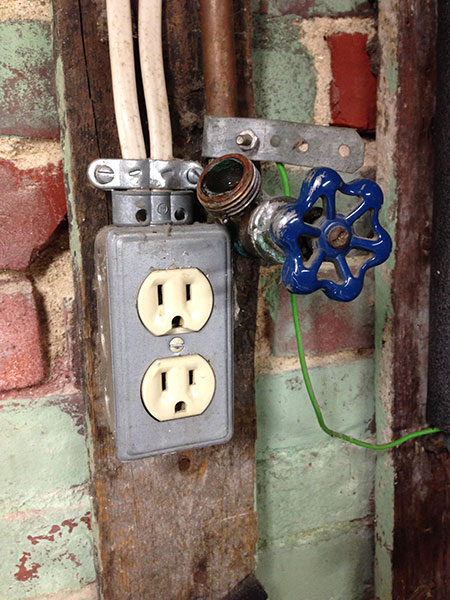
Having a flimsy support structure for an extending deck is no better than the poor workmanship and sense of judgement shown on the above photo. Timothy Dahl has collected about 23 individual cases that he terms “cringe-worthy ” for any home inspector. Why would anyone think that duct tape can hold a house together? Check out some of these dangerous situations that home inspectors come across as they carry out their duties from day to day. Here’s an extract from Dahl’s informative piece:
23 Totally Cringeworthy Home Inspection Nightmares
Home inspectors have the eye and experience to catch code violations and household damage before you, the home buyer, get stuck with them. Some problems, such as dirty filters and termites, need to be addressed but are really just mundane problems that any old house can suffer.
These code violations, on the other hand, are disasters waiting to happen. Some are idiotic oversights or corner-cuttings that will accelerate the wear and tear on a home, while others are downright dangerous for anyone living inside… wanna see the “deck of death”? It’s a doozy!
Now, speaking of poor construction or repair judgement (sometimes by paid contractors… sadly), there are situations where a home inspector wishes they were never called! You go up into an attic and realize that the roof could cave on you any second, wet crawlspaces, raw sewerage or failed renovations. Dale Trach has a list of 10 terrifying things that an average home inspector comes across every now and then:
The 10 Scariest Things a Home Inspector Can Find
Every time the toilet flushed, sewage entered the crawlspace through the missing clean-out cap.
Nasty for the poor home inspector, never mind the new buyer. Multiple issues for the home owner: health, sanitation, odour and moisture… here are 9 more
There’s a very interesting video starring Joe Terceira as the host (also a real estate agent) in the “The Home Buying & Selling Show” where Greg McHale shares a few frightening encounters he’s faced during his long career as a home inspector. Seems like home inspection nightmares run across borders!
A Home Inspectors Worst Nightmare was first published on Home Inspector Experts
from Home Inspector Experts
Friday, March 25, 2016
Real Estate on Long Island
Welcome to Paumanok, currently known as Long Island, NY.
On the Northeastern end of this Great American Continent lies Long Island, one of the most beautiful and historically rich island God’s green earth has ever seen. We still have villages; not like they did it during the times of the caviar and lobster eating Lenape Indians. Up until and during a large phase of the 19th century, Long Island was still pretty much rural settlement.
Long Island is predominantly covered by Suffolk and Nassau counties which are primarily suburban; and then there’s Queens and Brooklyn which are more like NY boroughs. As you can clearly tell once you come to Long Island, we have come a long way from the old days of dome shaped huts sourrounded by miles of cornfields to … just a bit of that… coupled with more sohisticated artitecture from our time.
According to early accounts recorded by the first European settlers, Indian houses in the area were dome-shaped structures from 10 to 20 feet in diameter, covered with grass. Clay covered openings at the tops of the dwellings prevented them from burning when fires were lit inside: the vents allowed smoke and heat to escape. – richmondhillhistory.org
Real estate on Long Island now ranges from single to multi family homes to commercial buildings to industrial property and warehouses. You can also find rentals in almost every part of Long Island.
The weather in Long Island also marches most neighboring coastal areas with warm humid summers and snowy winters (although a bit warmer compared to inland areas).
A near complete list of all the towns and villages in Long Island can be found on the Long Island dot com website:
Long Island Towns – Your Long Island Neighborhood Guide
Long Island has more towns and villages than Hollywood has movie stars, and it can get a little confusing – even to those of us who are born and raised here.
Long Island New York is comprised of two counties – Nassau County and Suffolk County, two cities – Long Beach and Glen Cove, numerous local towns, villages, hamlets, postal zones and designated places. In Nassau County we have three towns – Oyster Bay, Hempstead, North Hempstead, and two cities – Long Beach and Glen Cove. In Suffolk there are ten towns – Babylon, Brookhaven, East Hampton, Huntington, Islip, Riverhead, Smithtown, Shelter Island, Southampton and Southold as well as two Indian reservations – Poospatuck and Shinnecock. In addition, there are local hamlets and villages within these towns… see the complete breakdown of neighborhoods
Perhaps you will be interested in learning that Long Island has become a lucrative property market especially for new and growing families. We’ve helped thousands of Long Islanders choose their dream home. Check here for the Long Island communities we serve with our detailed and thorough home and property inspections. It is due to the availability of parks, boating and fishing waters, sufficient public infrastructure, social amenities, shopping spots, awesome communities, as well as countless annual cultural events for all family members to enjoy.
You can choose from the lavish neighborhoods of the Hamptons or the simple quiet life in the Northern agricultural towns in Suffolk. Katherine Chaffer shares some nice information on why you should invest in a home in the Plainview hamlet. Check out her reasons and well structured arguments:
Buying in Plainview
Plainview is diverse, Meringoff says, both in terms of the people who live there and the sizes, styles and prices of homes the community has to offer. He says you can find ranches, capes, Colonials and split-levels on lots ranging from less than a quarter-acre to a full acre in size. The price for a starter home can be in the low $300,000s, with high-end homes selling for more than $1 million. Another draw, Meringoff says, is Plainview’s strong resale value… find out more valuable tips
In addition to close home communities such as Plainview, there are many secluded estates for those who want to spend a little higher for their privacy. Diane Polland showcases an 8 acre water front property at Kings Point with 3 palatial residences. See the magnificent architectural design and flowing gardens in the compound. Are you into yachting or sports?:
Call us now for more available options in real estate on Long Island.
Find your dream home now!
Related Posts:
Real Estate on Long Island was first published on Home Inspector Experts
from Home Inspector Experts
Sunday, March 20, 2016
Declutter For Pre-Listing
As a home inspector in the Suffolk and Nassau Counties, we see a lot of homes just prior to being listed for sale. Pre-listing home inspections are quickly becoming common practice in some areas of the country because its benefits to a home owner can be numerous. However, as a home inspector we also see a lot of overly-cluttered homes clearly not ready for listing or attractive to a potential buyer. Below are some simple ideas on how to de-clutter your home prior to listing it.
It can be emotionally difficult to de-clutter and it can be a bit difficult because you do have to decide what you can hide by storing away neatly in a closet or off-site. (Do not over-stuff your closets; it can make your house look like there’s insufficient storage.) We even gave a mention to all of our clients on Google Plus to make sure to declutter your homes prior to inspection. We want you to get the most out of your inspection. Check out our post on Google Plus:
There are several key reasons for decluttering: A de-cluttered room makes it look bigger and captures “visual” square footage, it can highlight the home’s positive features because they’re no longer hidden under clutter, de-cluttering means de-personalizing so a potential buyer can envision themselves living in your home.
Here are some ideas for de-cluttering:
- Make the time over several days. It can be difficult with busy schedules to spend an entire day de-cluttering your home. Make and take the time over several days to begin de-cluttering, organizing, and putting things away.
- A place for everything. Make sure you dedicate space for everything or consider getting rid of it. Clutter builds up either because you didn’t know where to put something or didn’t take the time to put it away. Time to address both issues: if there’s no space, make one or get rid of it; if you didn’t put something away because of not taking the time, make the time now.
- A little bit at a time. De-cluttering can be overwhelming. Start with small things easy to deal with items. Start with small rooms or the least cluttered rooms and build from there. If you tackle it one space at a time, it won’t feel as overwhelming.
- Through strangers’ eyes. Look at your home through the eyes of a complete stranger. Stand back and really take a look at each room. What do you see? If there’s even a remote feeling of clutter, keep going. Remove furniture pieces if a room has too many pieces in it. Taking a picture of a room can be very helpful. The camera shot is critical and can reveal what you might not be “seeing” through a homeowners’ eyes.
- Keep it up! Once you de-clutter, keep things in their place. Take time every evening or morning, to put things away. Don’t let things and clutter build up again! Make so that when you get a last minute call to show your home, it’s ready to go!
As home inspectors working across Suffolk and Nassau counties, we are always happy to talk to potential clients about their home inspections. Contact us today to discuss your home or your future home!
Return back to homeinspectorexperts.com
Declutter For Pre-Listing was first published on Home Inspector Experts
from Home Inspector Experts
Thursday, March 17, 2016
What First Time Homeowners Need to Know
We’ve seen it often enough as home inspectors across Suffolk and Nassau counties: a new and excited home owner unwittingly causes damage or problems for themselves.
Here’s a list we’ve compiled based on an article in houselogic.com.
- Know where you main water shut-off valve is located. You’d be surprised how many home owners have no idea where their main water shut-off valve is inside their home. Water can cause enormous damage in a very short amount of time. A burst pipe can soak your floors, drywall, and valuables in minutes and cause thousands of dollars in damages. The main water valve is located at the point where water enters your home. Every family member should know where it is.
- Before you dig up your yard, make sure you know where your utility lines are buried in your front and back yards. Calling 811, the national hotline for digging safely, can get your local utilities out to your home to mark where all your underground utilities can be found. It can be dangerous to knick a line or gas pipe!
- Check your soil levels. All the soil around your home needs to drain away from your dwelling by at least 6”. The accumulation of water, rainwater, or snow at your foundation can put unnecessary pressure on it and eventually lead to cracks and thousands of dollars repairing your foundation.
- Do you have adequate attic insulation? One rule of thumb is to ensure you don’t see the top of your joists. If you do, your insulation is likely inadequate. Contact as as professional home inspectors and we can take a look for you and make a recommendation.
- Stop before you hammer in that nail! Use a stud sensor to detect hidden items behind your drywall. It can help detect studs, ducts, and cables. They’re not 100% foolproof, but it’s better than just hammering or drilling into a wall to find out your cut a cable. You don’t want to go deeper into a wall than you really need to, by the way. Some rules to keep in mind: 8 inches to 2 feet horizontally between outlets and vertical locations above and below switches are no-go zones. Don’t drill or nail into those areas where electrical wiring is located!
- Cutting down a tree, even a small one? Call a professional. You’d be surprised how tricky and difficult it can be to cut down a tree and control where it lands. Get it wrong and it could be fatal at worst and very expensive at best.
We’re always happy to work with our clients on home maintenance inspections to help them keep their properties in top shape through the years. By the way, we have created a great info graphic on what you should know about your new home. If you live in Suffolk or Nassau counties, give us a call today so we can provide a free estimate on an inspection based on your needs!
What First Time Homeowners Need to Know was first published on Home Inspector Experts
from Home Inspector Experts
Saturday, March 12, 2016
3 Mistakes Every Home Buyer Should Avoid
Buying a home especially for first timers is not a walk in the park (yeah, I threw you a cliche phrase…). During an interview one of our inspectors stated it best “buying a home is one of the most important investments in any one’s life, source: www.homeinspectorexperts.com/l-i-home-inspection. You will be forgiven for assuming that getting a pre-approval stamp from a mortgage lender already gives you a green light to go ahead and start signing deal papers with the seller (or any other seller for that matter…). There are so many mistakes that home buyers, including the “experienced ones”, have been known to repeat time and again. You should have a look at the 3 most costly mistakes explained in this article and (cliché alert…) “avoid them like the plague!”
Yes, buying your first home or any other subsequent home after that is always exciting. But you should be careful not to be caught up in the frenzy. This is serious business and any small loop hole could fast leave you in debt or worse… covered up to your head in lawsuits. So what are these mistakes that you should avoid as a home buyer?
#1- ACTING OUT OF EMOTIONS: It’s not about what your heart thinks… get your financial facts right…
Of course buying a home is going to be one of the most emotional things you’ve ever done in your life; but don’t let that cloud your judgment. Some people think that they should get everything new for their new home… new furniture, hold up, stop… that’s your heart doing the thinking! Some will go to the dealership and get a new car to match their new home… again that’s a No-No!
So they told you that you qualify for the mortgage? Well, what they forgot to tell you is to keep your wallet shut until the deal is done. Did you know that adding more debt to your credit could jeopardize your home buying deal? Yes, mortgage lenders will quickly throw you to the “see you later” section if they find out that you have more debt like furniture or car purchases heaped on your credit.
Another thing is for you to think at least 5 years ahead and determine whether you’ll still be in that house or you will need to move (it could be because of your job). Do not be influenced by the “market”; but still, don’t wait too long for the right time to come. All these are decisions that require a level head, not emotions. Michael Yardney has compiled an amazing list of 13 things you should avoid as a home buyer. Emotions can lead to bad mortgage choices, buying out of desperation, overspending… you name it. Here’s what he says:
13 Common Mistakes Home Buyers Make – and how to avoid them
Buying your next home can be a daunting task, especially if it’s your first home.
It’s exciting but full of complexities.

Don’t be swayed by the market… isolate your facts. image: Michael Yardney/ propertyupdate.com
While it’s likely to be the largest financial transaction you will ever make, we’ve found that many home buyers are poorly prepared to ensure they make a good purchase decision.
And it’s not their fault.
The system is stacked against them, with much of the power being on the side of the seller.
To help guide you, let’s look at 13 Common Mistakes made by Home Buyers – ones that you should avoid… checkout mistake #6
#2 OVERLOOKING THE IMPORTANT PARTS OF THE DEAL: Don’t cut corners… And you need Professionals in your corner!
First things first… the most important part of buying a home is not buying the house, its finding the right agent, the right house, the right inspector, a damn good lawyer and doing everything by the book! You should also know the reasons why you are getting the inspection done, know what they are looking for and what questions to ask. Doing this without a good team of professionals backing up your decisions is suicide! First time buyers don’t really know who they’re dealing with or how to go about hurdles. Collect a few references and seek advice from two or more professional to get their honest opinions.
The bankrate dot com website has highlighted some pretty interesting facts on following the right channels and why you need to hire professionals when buying a home. This one article by Polyana da Cost a is a real eye opener. However, it’s one of the comments from one of the visitors on this post, (@comment_comment_comment),that really raised my eyebrows. Remember, it’s more than just paying for your mortgage. Check this out:
5 first-time homebuyer mistakes

Think before you leap into a pool of problems! photo: Polyana/ via bankrate.com
@comment_comment_comment:
“People generally don’t like renting because they feel that they are throwing money away, but let’s crunch the numbers.
For a $300,000 home:
Mortgage rate: 5% (higher for right now, but considered a steal 20 years ago)
Down payment of 20%: $60,000
Mortgage Term: 30 years
Total cost of Mortgage: $463,814
Money lost to Interest: $223,814
Money lost in Property Taxes @2%: $180,000Total amount lost: $103,814
Now let’s say instead of purchasing a home with your down payment, you decide to rent and invest the down payment instead.
Rent: $1250/mo
Investment Contribution:$60,000 initial + $500/mo that would be paid in property taxesTotal cost to rent over 30 years: $450,000
Investment earnings at 8%(average stock market earnings): $1,341,323
Net Value: $891,323Obviously home prices generally increase over time (as does rent), but the point is it isn’t cut and dry. It will cost you money to live somewhere regardless. The real question is: do you want to invest in Real Estate or the Stock market?”… find out more on avoiding silly mistakes
#3 NOT DOING YOUR HOMEWORK RIGHT: Buying a home is not like picking candy at a store…
Ok, so you think you just found your dream house? But is this enough to go on when making such an important life decision? Another thing that should immediately come to your mind when you’re out there looking for a house is that you are not just buying the house… you’re buying everything that comes with it. Available public infrastructure, the neighborhood, transport, social amenities… everything!
Bob Sokoler and his team (the Medley Sokoler Team) decided to shed some light on this issue through a very creatively done and informative video on the mistakes home buyers must avoid especially when it comes to doing their homework. The second tip will get you going “Oh, is that so…?”:
10 Home Buyer Mistakes You need to AVOID! Tip 2 Do your homework!
3 Mistakes Every Home Buyer Should Avoid was first published on Home Inspector Experts
from Home Inspector Experts
Tuesday, March 8, 2016
How to Get The Most Out of Your Home Inspection
Let’s get one thing straightened out first. You will need proper home inspections from time to time as a homeowner to ensure that your house doesn’t cave in or breed strange fungi that could end up (God forbid…) affecting your family member(s) health-wise or worse! If you would like to request inspection click here. You will also need to have any property you want to buy thoroughly inspected before you take the deal any further.
For home owners, this saves you from extensive and expensive repairs while also helping you maintain your home’s equity. For a buyer, it will basically save him/her the pain of losing money from possible lawsuits (when walking out of a deal with signed paperwork and any deposits) or otherwise (future inevitable repairs). The one thing you should keep in mind as a potential home buyer is this: ALWAYS BE CAREFUL WHAT BINDING DOCUMENT YOU SIGN!
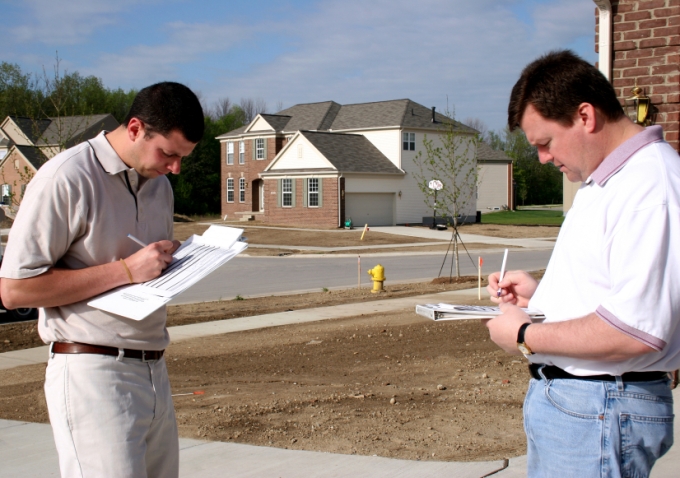
Now that we have that simple point locked down let’s get to how you can get the most out of a home inspection. Remember that the home inspector is not an angel therefore do not expect them to just walk in and walk out with all the answers to your current or expected problems in a single visit. Regardless, you can still manage to get a good and properly carried out home inspection if you can follow a few simple guidelines like tagging along on an inspection exercise or separating the inspection process with any repair work.

It is also advisable that you carry out your own home inspection and make notes on whatever problems you can immediately identify. This will help you ask the right questions after choosing the best home inspector for the kind of inspection you want. It will also help you make your own repair estimates before you’re slapped with a bloated repair bill! You might find that some repairs are simple DIYers that will cost you less to repair plus you will be better placed when bargaining for a fair price with the person/company doing the repairs. Check out what Leonard Baron has shared about getting a good home inspection deal:
How To Get The Most Value Out Of Your Home Inspection
Once an offer on a property is accepted, most buyers hire a professional home inspector to assess the condition of the home. The inspector will write a detailed report for the buyer to use in deciding how to proceed with the purchase. Should the buyer cancel the contract and terminate the purchase; ask for the seller to complete repairs; or request a price reduction or purchase credit from the seller to cover repairs?
Unfortunately, many buyers fail to realize the importance of the home inspection. Keeping the factors below in mind can help ensure that you get the most value from the process… Here are the valuable tips
In addition to carrying out your preliminary inspection and following the home inspector around during the inspection process, you should also ensure that you get the best inspector and get the best price. Another thing to remember is to ensure that you DO NOT use the same person/ company for both inspection and repair otherwise you will end up with a very long list of repairs!
Alyson McNutt English highlights more on some of the mistakes you can make when getting your home or home-to-be inspected. Most of the times we assume that the home inspector should do everything and that they should hand us all the answers… wrong again! What you should know is that a home inspection process can only be successful and valuable to you if you avoid the following mistakes:
5 biggest home inspection mistakes
A home inspection is one of the most important steps you can take to make sure your new home is a sound investment and a safe place to live.
But, many people don’t fully understand what happens in a home inspection or what they need to do to get the most out of it. Find out what inspectors say are the five biggest mistakes buyers make during the home inspection, and how you can avoid these potentially pricey pitfalls… find out what mistakes you’ve made
Have you met NED the cat? Funny guy… Well, Ned has some tips on getting value out of your home inspection exercise. Hope you will learn something from Ned after he seriously cracks you up. Here is a video we picked up from the CATHUB channel on YouTube:
http://www.hisdfw.com/blog/wp-content/uploads/2015/07/HIS-Types-of-Home-Inspectors-Dallas-TX.jpg
http://www.berkshirehathawayhs.com/images/recos/1265/design2016/img-inspection.jpg
How to Get The Most Out of Your Home Inspection was first published on Home Inspector Experts
from Home Inspector Experts
Saturday, March 5, 2016
Installing a Carbon Monoxide Detector Can Save Your Life
Carbon monoxide is an odorless, colorless gas that can kill. We perform inspections throughout the Suffolk County, NY and Nassau County, NY areas, and we always implore our customers to install carbon monoxide detectors in their homes.
ABOUT CARBON MONOXIDE:
CO is found in the fumes of cars, trucks, small engines, stoves, lanterns, grills, gas ranges, fireplaces, and furnaces. In certain quantities, it is fatal to humans and animals. People have no idea they are inhaling it, because it is odorless.
SYMPTOMS OF CO POISONING:
When inhaled in smaller quantities, the symptoms can easily be confused with other medical issues but the include: headache, weakness, upset stomach, dizziness, vomiting confusion, and chest pain. These are symptoms typical of a flu. When inhaled in larger amounts, humans and animal can lose consciousness and prove fatal. If the person is sleeping or intoxicated when they inhale CO, they can die without experiencing any symptoms.
WHO IS AT RISK?
Basically, anyone is at risk for CO poisoning. The most vulnerable to CO poisoning, however, tend to be the young and elderly, people with heart disease, asthma, anemia, and other respiratory illnesses.
More than 400 Americans die from unintentional CO poisoning not linked to fire. More than 20,000 people will visit the emergency room and more than 4,000 hospitalized each year due to CO poisoning.
HOW TO PROTECT YOUR FAMILY:
It’s very simple to protect your family!
1) The first step is to install a CO detector in your home. It is easily plugged into any outlet, and they are reasonably priced for what they can do – protect your life in case of a CO leak in your home. Place the detector outside a bedroom. Pro tip: check to make sure your home inspector has this on his checklist.Some detectors are able to tell you the levels of CO in addition to sounding the alarm. The CDC recommends replacing your detectors every 5 years.
2) Annual maintenance and service by a qualified technician of your heating, water heater, and any gas or coal burning appliance is important. Any odor from a gas refrigerator needs to be checked. Chimneys should also be checked annually.
3) Portable flameless chemical heaters should not be used indoors.
4) Only purchase gas equipment that carries the seal of a national testing agency like the Underwriters’ Laboratories (UL).
5) All gas appliances should be vented properly.
6) Never patch a vent pipe as it can cause a CO build up.
7) Never use a gas range or oven for heating your home because this can cause CO build up. Never use a portable gas camp indoors, either.
8) Charcoal of any kind give off CO. They should not be used indoors.
9) Never use a generator inside your home, basement or garage unless it’s 20 feet from any proper venting source.
10) Never leave a running vehicle in the garage. Regularly maintain and service your vehicles.
Related Articles:
*Based on: http://www.cdc.gov/co/faqs.htm
Installing a Carbon Monoxide Detector Can Save Your Life was first published on Home Inspector Experts
from Home Inspector Experts
Wednesday, March 2, 2016
What Kind of Tools Does Your Home Inspector Use?
A home inspector needs a few professional tools to carry out a thorough home inspection. It is very common for home inspectors to carry a lot of tools with them; some of which are rarely used. However, would you believe that one of the most important home inspector’s tools is a flashlight? The other important tools for a home inspector are definitely an electrical tester, speaking of which, you should never underestimate the importance of an electrical inspection for your home, a ladder and a moisture meter. These three simple tools can be used by a professional home inspector to uncover many faults in and around most homes as guided by InterNACHI Standards. Lastly, regardless of whatever tools a home inspector chooses to bring with them, a tool bag to fit and organize all your equipment is very important.

Please Note: A seasoned home inspector can do more with just their nose, fingers, a ladder and instinct than a novice would; even with a full kit of the most expensive and sophisticated tools! A home inspector’s bag of tricks is quite expensive to fill all at once if you’re looking to have everything required in the business with you. As many professionals in this industry will advise you, experience is the best teacher in home inspection and you find that most of tools in your tool kit are bought out of necessity as you continue to encounter different problems in your day to day home inspection gigs. Check out what the ICA (Inspection Certification Associates) have to say about the home inspector’s tool kit:
Which Tools Will I Need for Home Inspections?
A home inspector’s tool kit contains numerous items, but you’ll collect many of them after you’ve been in the business for a while. Experience is a great teacher. But some tools are important for home inspections from day one.It doesn’t cost a fortune to get started. In fact, the basics can fit into a budget of about $200. But if you want to expand your horizons, there are more expensive tools with more options to think about (…) Your home inspection tool kit will evolve over time. You’ll learn which flashlights you like best, and which electrical testers perform better. You might even invest in special equipment for tests such as radon, if you want to expand your business.Getting started in the home inspection business shouldn’t cost a fortune. The basics are affordable, and you’ll use them every day. For everything else, time and experience will be your guide… See what more you will need in you bag of home inspection tools
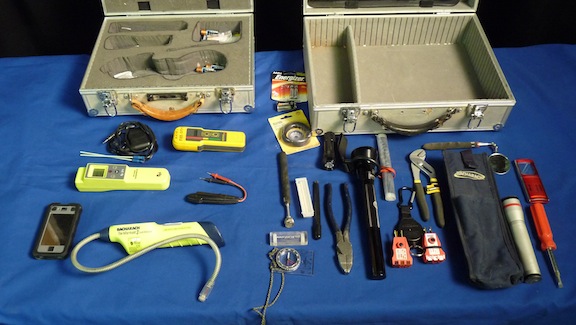
In addition to the basic home inspection tools (flashlight, a ladder, a moisture meter, and electrical testers), there are more tools that come in handy for everyday home inspection business and these include a respirator, an AC voltage detector, matches, screwdrivers, tool vest, water pressure gauge, safety glasses, gloves, small pocketknife, a thermometer, coveralls, a tape measure, GFCI Receptacle Tester, knee pads and an inspection mirror among others. Here’s what Nick Gromicko and Kenton Shepard think any average home inspector worth their money must have:
Home Inspection Equipment
Inspectors are free to use whatever equipment they choose, as long as their inspections comply with the InterNACHI Standards of Practice. Here are examples of some of the equipment used by home inspectors… Check out the their list of home inspection essentials

For veteran home inspectors, you will probably find two or more of each tool highlighted above in their home inspection tools collection. This is from years of dealing with different scenarios as they go about their professional business. Of course this is after discovering how each type of duplicated tool in their arsenal helps make things easier in different situations (according to make, model, accuracy and functionality). If you would like to watch a home inspector in action, here is a HGTV video hosted by Chris Davis titled “Home Inspection with Vince from HGTV ” that shows a home inspection exercise and how most of the home inspection tools are used:
In conclusion, be cautious when shopping around for a home inspector because there are many incompetent wannabes out there and you do not want to miss any fault(s) that might cause more future damage to your home. A home inspector should be armed with the right tools that not only make work easier throughout the entire process but are also pin point accurate to avoid any guess work. It will also be important to note that a home inspector’s tools are only as good as the home inspector using them and veteran home inspectors can cover a lot of ground in your home using only the most basic tools of trade and still come out with a comprehensive report.
Image Credit:
https://www.toolexperts.com/images/P/basickit6.jpg
https://d12m281ylf13f0.cloudfront.net/images10-2/figure_1_inspection%20_tools.jpg
https://d12m281ylf13f0.cloudfront.net/images10-2/inspection-vest.jpg
What Kind of Tools Does Your Home Inspector Use? was first published on Home Inspector Experts
from Home Inspector Experts
Friday, February 26, 2016
Taking Care of Your Home
Taking care of your home is your own business and you should be allowed to live the way you want… after all, it’s your home right? Wrong! Unless you never have friends or family members come over or maybe you just have a problem with saving your hard earned money.
First, it ensures that the inhabitants are comfortable and safe from disease, physical harm or unnecessary large repair and replacement bills. More importantly, it ensures that your home ages at a slow and acceptable rate and this helps maintain your home’s resell value.
Remember, not everyone in your blood line will want to continue living in that same old inherited house. The second thing you should note is that many accidents occurring in and around your home are just as a result of negligence and poor home maintenance practices; unattended worn-out exposed electrical wires here, a broken stair or piece of furniture there, or even loose tiles in the bathroom.
The best way to keep everything in check is to carry out regular inspections and never ever procrastinate! If you are local to Long Island, NY then you can request a home inspection quote with us or even get a free consultation. There are simple ways to help you take proper care of your home and keep it from looking older that it actually is… eventually losing on its market value or breaking apart right underneath you.
The first step is creating your own routine and a checklist of tasks for each DIY home maintenance or inspection exercise. Having a good plan is the key as Lara Edge clearly puts it in plain words in her article on maintaining fungi free homes and mega saving through a simple 3-step moisture damage control routine that many people continue to ignore:
How to Prevent Water Damage
“Water damage is the No. 1 culprit that weakens your home’s foundation and the very core that holds your house together. You’ve heard about core strength for your body. Well, water damage hits at the core strength of your house, eventually causing serious structural damage. Damp wood invites termites and carpenter ants; plus, it causes mold and mildew. Here are three easy things to do to that will give you piece of mind the next time heavy storms hit.” Get more details on the 3-step preventive water damage control routine here…

As always, you should do your cleaning in and around your home when you ought to and take care of any repairs as soon as they’re required to avoid dealing with ant-hills turned mountainous situations that can be both dangerous and daunting.
Still on the cleaning issue, there are many spots around the house that we often overlook or plain outright ignore… like the back of the TV! Sometimes this can be because the people living in your home are extremely busy leaving you with just enough time to carry out the cleaning casually… oh, and create some new string of bacteria on piled up dishes from a month ago in your kitchen sink… Worry not; Kayla Matthews has compiled a list of 20 hilariously explained tips on how busy people can still take care of their homes even with the tightest of schedules. You will be surprised how much you can do in just a few hours a week of dedicated cleaning in your home:
20 Efficient Home Care Tips for Super Busy People (Nobody Knows About #12)
“I don’t care how big or small your house, apartment, or condo is. When it’s a mess, it feels like it takes FOREVER to clean up. And when you’re busy trying to stay on top of your professional life, your kids’ homework for the week and somehow find a free moment to enjoy your spouse’s company, you just don’t have time to clean as much, or as thoroughly, as you’d like. So, sometimes, we just skip over it and choose, instead, to stare begrudgingly at the tasks we should be doing rather than doing anything about them. I don’t know about you, but when my home is a wreck, I feel lazier and much less productive. I love spending time in my house when it’s clean, but being in my messy kitchen after I didn’t have time to clean it all week makes me feel totally unmotivated. And I’m not the only one:” Care to find out what home care tip #12 is…?

Of course if you’re like most of us, then I guess it really helps to see someone else do it… right? Like what’s this plan (killer home care schedule) that everyone must have or follow? How does one even start on making schedules and ensuring that everything is in order and taking care of your home is completed in a timely and precise fashion? Hell, how organized is organized?
Alejandra Costello stars in a very inspiring Alejandra TV’s home tour video guide titled “Most Organized Home in America – HGTV Clean Freaks & Professional Organizer Alejandra Costello” that features one of the most organized homes this world has seen yet. Everything from a carefully arranged pantry (food cupboard) to a clean organized kitchen to a home office that would make the chief of stuff think twice about reorganizing the oval office at the Capital! You have to see this video to really get a picture of what an organized home looks like… you’re guaranteed to be both utterly amazed and inspired or very, very jealous. De-cluttering is the key word here:

Just take a few minutes of your busy schedule and make sure you carry out a bit of inspecting, cleaning and organization in small portions. This will make the whole home maintenance exercise seem less tiring and boring. My advice, get a good portable music player (your phone can also work…) and you’re good to go.
Taking Care of Your Home was first published on Home Inspector Experts
from Home Inspector Experts
Saturday, February 20, 2016
How Often Are Termite Inspections Necessary?
People often ask us how often they should do a home inspection for termites. The answer is simple: about once a year! But more on that later…
Termites eat all day long and all night long, every day and every night. That means that with so many hours of eating wood, their damage can be extensive and can occur over a relatively short time. Worse yet? The damage isn’t always obvious to the untrained eye until major damage has occurred!
The U.S. Department of Agriculture estimates that termite damage is in the billions of dollars every year across the U.S. And, the Environmental Protection Agency estimates that the average termite damage costs approximately $2500 to $3000 to repair. The good news about termites and other wood-destroying pests is that they can be controlled and be identified with regular home inspections!
Can you do an inspection yourself?
The simple answer is: yes, you can do a termite inspection with no previous experience. However, (and that’s a big however) while any home owner can look for termites, it does not replace a professional inspection – ever. It is important to have a trained and experienced inspector make the final determination as to whether your home is suffering from a termite infestation and there is any damage. Termite damage can be obvious at times even to the untrained eye while at other times, it will take a trained eye to diagnose an infestation.
A quick tip if you’d like to look for yourself first:
— Termites are attracted to moist wood. Search any damp areas including around windows or other areas just after rainfall. If you even suspect termites or other wood-destroying pest, it’s important you contact a professional immediately.
— Look for “tunnels” the width of a pencil in wood, including at your foundation level. If you find a tunnel, you most likely have termites.
— Look for any kind of wood damage or “odd-looking” patches on the wood. Termites will begin eating wood from the inside and damage isn’t always visible on the outside of the wood. However, any type of wood darkening, blistering, or softening can be a sign. Crumbling wood is another obvious sign of termite presence.
How often should you have a termite inspection?
People often wait to conduct a termite inspection when they do a general home inspection either for maintenance purposes or because they plan to sell their home. However, waiting until then to have a termite inspection performed could prove extremely costly! If left unchecked, you could find yourself with thousands of dollars in necessary renovations and remediations.
Termite inspections should be performed about once a year, especially if you live in a humid environment or there is the potential for any moisture incursion. An expert will inspect the interior and exterior of your home, basements, attics, and crawlspaces.
These inspections typically run about 30 to 45 minutes and a diagnosis can be given immediately. A good inspector will review their findings with you at the end of their inspection and offer any recommendations if any damage is found. The inspector can also provide suggestions on how to prevent termites including regular treatments for your home or property.
Regular termite inspections by a qualified inspector can help you maintain your structure’s integrity healthy and termite free. We have extensive experience across Suffolk and Nassau County, NY and would be happy to provide you with an initial estimate for a home inspection or a termite inspection.
Image Credit:
https://commons.wikimedia.org/wiki/File:Termite%27s_nest.jpg#/media/File:Termite%27s_nest.jpg
https://commons.wikimedia.org/wiki/File:Termites_inside_of_a_mound-Tamilnadu17.6.jpg
How Often Are Termite Inspections Necessary? was first published on Home Inspector Experts
from Home Inspector Experts
Saturday, February 13, 2016
8 Reasons for Performing a Home Inspection
Whenever someone buys or sells a home, a home inspection is necessary and there are a lot of reasons for this. The procedure is not only meant to uncover structural problems, but also to help the buyer negotiate the price if it is a pre purchase inspection, to detect any pests or safety issues and to make sure the settlement is correct. These are 8 good reasons to perform an inspection:
1.Saving Money in the Long Term
The cost of a typical inspection for one home with a single family is of a few hundred dollars. This sum is small considering the amount of money you can save in the long term if you don’t have to perform any future repairs. You surely don’t want to realize this later from your own experience so it would be wiser to inspect the building early and avoid any problems.
As a side note: In an effort to help our Long Island community save money, the Home Inspector Experts is giving all Long Island residents 25% off on their home inspections for the month of Febuary! Checkout our announcement on Twitter.
This month we will be providing a 25% discount for ALL of our Long Island home inspection services! https://t.co/wskZpmB8gD #homeinspection
— Home Inspectors LI (@homeinspector58) February 13, 2016
2.Discovering Safety Issues and Structural Problems
An evaluation of the home can help you to detect problems that could compromise the safety of your family. There could be some issues involving the hidden parts of the structure, such as bad wiring, mold presence, or the presence of radon. Foundations could have problems even from the beginning and this can be common for new homes. Just like you cannot judge a book by its cover, you cannot judge a building by its exterior parts. Even the smallest leak can grow in time and could lead to major issues that could cost you a large sum of money.
3.Obtaining a Lower Price
Another good reason for inspecting the home you are buying is the possibility to negotiate the price and obtain a lower one. This can happen when the home has some issues and is not worth the price that the seller is wanting. The buyer can include in the contract clauses referring to repairs that the sellers has to make if the requested price is going to be respected. In any other case, the price has to become lower.
4.Receiving Advice About Maintenance
Home inspectors can help homeowners and buyers with advice and tips, because there are well-trained and have many years of experience. You can ask any questions and the expert will be able to answer them. As a buyer, it is always good to be informed about your future home.
5.Detecting Pests or the Presence of Insects
Pest control is another important thing for any home and the seller must be aware of it. You surely don’t want the building that you are about to buy to be infested with rodents, ants, termites and other similar creatures. During home inspection, this type of problem can be uncovered and the sellers can do something about it.
6.Protecting Your Family
If you are concerned about safety, an inspection can be the best thing you can do. Listen, if you are in need of any Long Island home inspection services the Home Inspector Experts should be your first choice. We have been inspecting homes on Long Island for quite some time and we know exactly what to look for that is specific to the area you are living in whether that is Suffolk County or Nassau County, L.I. You can become aware of any hazards, dangers and safety issues that can be involved in the acquisition or sale of a home. You can have peace of mind and this is one of the most important aspects. When you are moving to a home that is safe and solid, you can make sure that you will not be stressed in any way in the future and your family is protected.
7.Uncovering Any Illegal Installations
Homes can sometimes be the subject of illegal installations or additions. If the current owner has done such things, these extensions will be uncovered during the evaluation. Sometimes the extensions that homeowners have made are beyond the legal permits or codes. This can have an effect on the building’s insurance, taxes and value.
8.Having a Real Perspective Over the Building’s Value
Quite often during the acquisition of a home, buyers can become blinded by the structure’s aesthetics. Maybe they like the home so much that they forget about important aspects like safety or the need for repairs. An inspection can help the buyer to get a real impression about the future acquisition. Experts can help you to determine if your dream home really is a dream home or your future nightmare.
Conclusion
The conclusion is there are numerous reasons to perform a home inspection, a procedure that is highly recommended by experts. A new home is like an investment for the future. If you want your investment to be secured, you can ask a professional to help you. This individual will be able to perform a more detailed inspection than a real estate agent.
8 Reasons for Performing a Home Inspection was first published on Home Inspector Experts
from Home Inspector Experts
Monday, February 8, 2016
Who Needs a Home Inspection?

Home inspection is needed in three main cases: when you have a home and you want to know its true value and condition, when you have a home and you want to put it for sale and when you want to acquire a home. Professional home inspectors can evaluate a home regardless of how old the building is. The building’s structures and systems are checked and the expert will be able to provide a report about the state of the foundation, roof, plumbing systems, HVAC systems, electrical systems and various structural parts of the building. A home inspector always performs the inspection job for the person who pays for the evaluation.
Home Inspection for Homeowners
This is a typical evaluation of your home that should be performed every four or five years for detecting any possible dangers to the inhabitants. Any issue can be detected early, in order to avoid any further repercussions. Costly repairs can be avoided in this way. This evaluation has a direct impact on your life, because it can provide peace of mind and an assurance of safety for you and your family.
Home inspection for Home Sellers

If you want to put a house on the market for the purpose of selling it, you can have the opportunity to reduce the time normally needed for negotiation. Performing an evaluation is one of the major steps that you can take for selling a home the proper way. The marketability of the house that you are about to sell improves. Any problems that may be discovered during the evaluation can be solved in a timely manner.
Home Inspection for Home Buyers
This is one of the most common types of verification and the costs can depend on the size of the building and its location. Buyers usually expect that the professional will help them to achieve their goals and this is what actually happens. However, there are definitely some basic questions to ask a home inspector before hiring them, after all they will be inspecting what is likely the most costly investment of your life! This obviously means that they want to buy a home that is in the proper condition so that they don’t have to pay more later for repairs.
A specific amount of time is offered to home buyers for completing an inspection of the building that they want to acquire. The need for home inspectors seems to be increasing right now, as real estate buyers are more aware of the benefits of an inspection and they tend to be more cautious regarding what they buy.
No matter which one of the three cases above applies to your situation, you must allow up to three hours for the inspection to complete. You can be present during this time in order to have an overview of the home’s condition. You will be able to express your concerns and ask any question that you may have. Prepare a list of questions before the inspector comes to your home.
Who Needs a Home Inspection? was first published on Home Inspector Experts
from Home Inspector Experts



